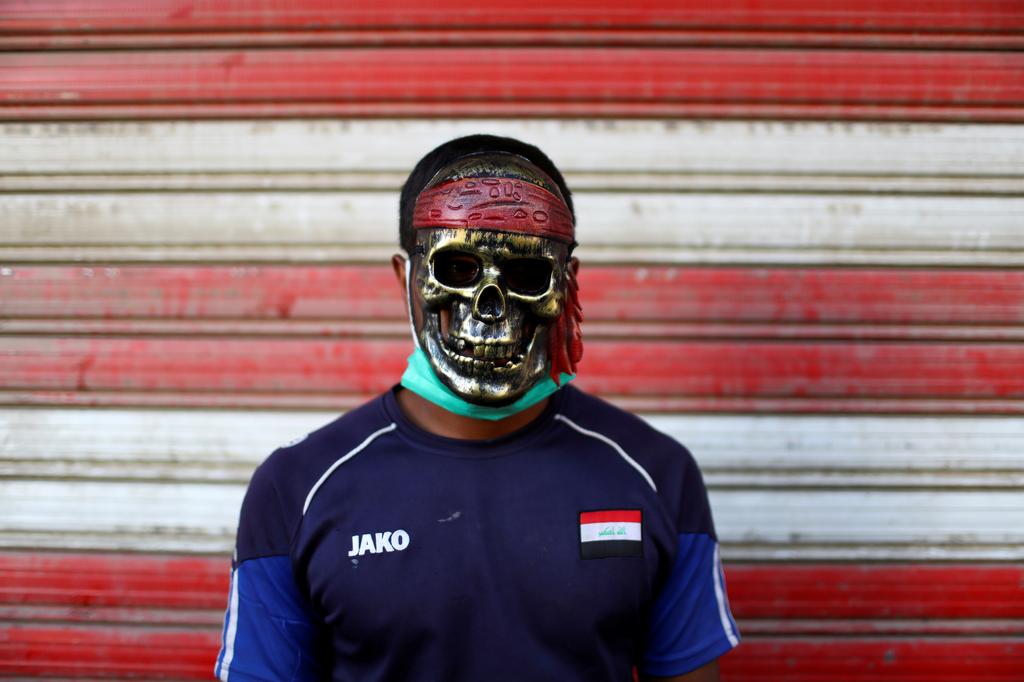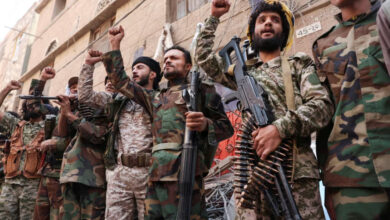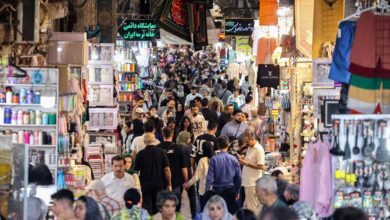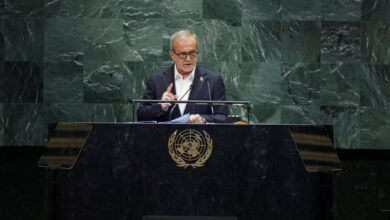
BAGHDAD (Reuters) – Fresh clashes between Iraqi security forces and anti-government protesters broke out on Friday killing at least three people, despite a call for calm by the country’s top Shia cleric, as authorities grapple with the nation’s biggest crisis in years.
Security forces fired tear gas and threw stun grenades into crowds of demonstrators wearing helmets and makeshift body armor on a main road in central Baghdad, sending protesters scattering, some wounded, Reuters reporters said.
One protester was killed by a tear gas canister fired directly into his head, a Reuters witness said. In the southern city of Basra, two people were killed as security forces dispersed hundreds of demonstrators outside the local government headquarters, police and medics said.
More than 280 people have been killed since the protests over unemployment, poor services and endemic corruption began in Baghdad on Oct. 1 and quickly spread to southern provinces.
Police, the military and paramilitary groups have fired live rounds at mostly unarmed protesters.
Grand Ayatollah Ali al-Sistani, who only speaks on politics in times of crisis and wields enormous influence over public opinion in Shi’ite-majority Iraq, held security forces accountable for any violent escalation and urged the government to respond as quickly as possible to demonstrators’ demands.
“The biggest responsibility is on the security forces,” a representative of Sistani said in a sermon after Friday prayers in the holy city of Kerbala. “They must avoid using excessive force with peaceful protesters.”
Many of the demonstrators, some of whom view Sistani as part of the political and religious system they say is the cause of many Iraqis’ misery, took little solace from the cleric’s words.
“He says he’s supporting protests and that we should keep going but he hasn’t helped. The speech won’t make a difference,” said one woman protesting in Baghdad whose son was killed in recent clashes.
“I’m the mother of a student. They took his life,” she said, giving her name as Umm al-Shaheed, Arabic for mother of the martyr.
The demonstrators, mostly unemployed youths, demand an overhaul of the political system and a corrupt ruling class which has dominated state institutions since the US-led overthrow of Saddam Hussein in 2003.
In Basra, four people were killed on Thursday and two on Friday as security forces dispersed protesters. A third person wounded in clashes at Umm Qasr port two days earlier also died from his injuries, officials said.
SPIRAL OF VIOLENCE FEARED
The violent response from authorities has fueled public anger. Snipers from Iran-backed militias that have participated in the crackdown were deployed last month, Reuters reported.
Live fire is often used against demonstrators and even tear gas canisters, fired directly at protesters instead of being lobbed into crowds, have killed at least 16 people, New York-based Human Rights Watch said on Friday.
Doctors at hospitals have shown Reuters scans of tear gas canisters embedded in the skulls of dead protesters.
Sistani warned against the exploitation of the unrest by “internal and external” forces which he said sought to destabilize Iraq for their own goals. He did not elaborate.
Officials and analysts fear that militants could exploit unrest to sow more chaos in Iraq, which has suffered decades of conflict, sanctions and corrupt governance.
Late on Friday the military said 17 rockets had landed near a base hosting US forces in northern Iraq. It did not say who was believed to be behind the attack.
The United States blamed Iran-backed militia for rocket attacks on other bases in May this year, but US forces are also involved in a fight against Islamic State militants.
Government handouts for the poor, promises to prosecute corrupt officials and create more job opportunities for graduates have failed to placate protesters, whose demands include a new electoral system and the removal of all current political leaders.
The protesters also reject foreign interference in Iraq, which has long been caught between its two main allies and bitter rivals, the United States and Iran.
Public anger has been directed particularly towards Iran, which supports the parties and paramilitary groups that dominate the Baghdad government and state institutions.
Reporting by John Davison, Ahmed Rasheed, Ahmed Aboulenein, Raya Jalabi; Editing by William Maclean and Daniel Wallis
Image: An Iraqi demonstrator wears a mask during the ongoing anti-government protests in Baghdad, Iraq November 8, 2019. REUTERS/Ahmed Jadallah




